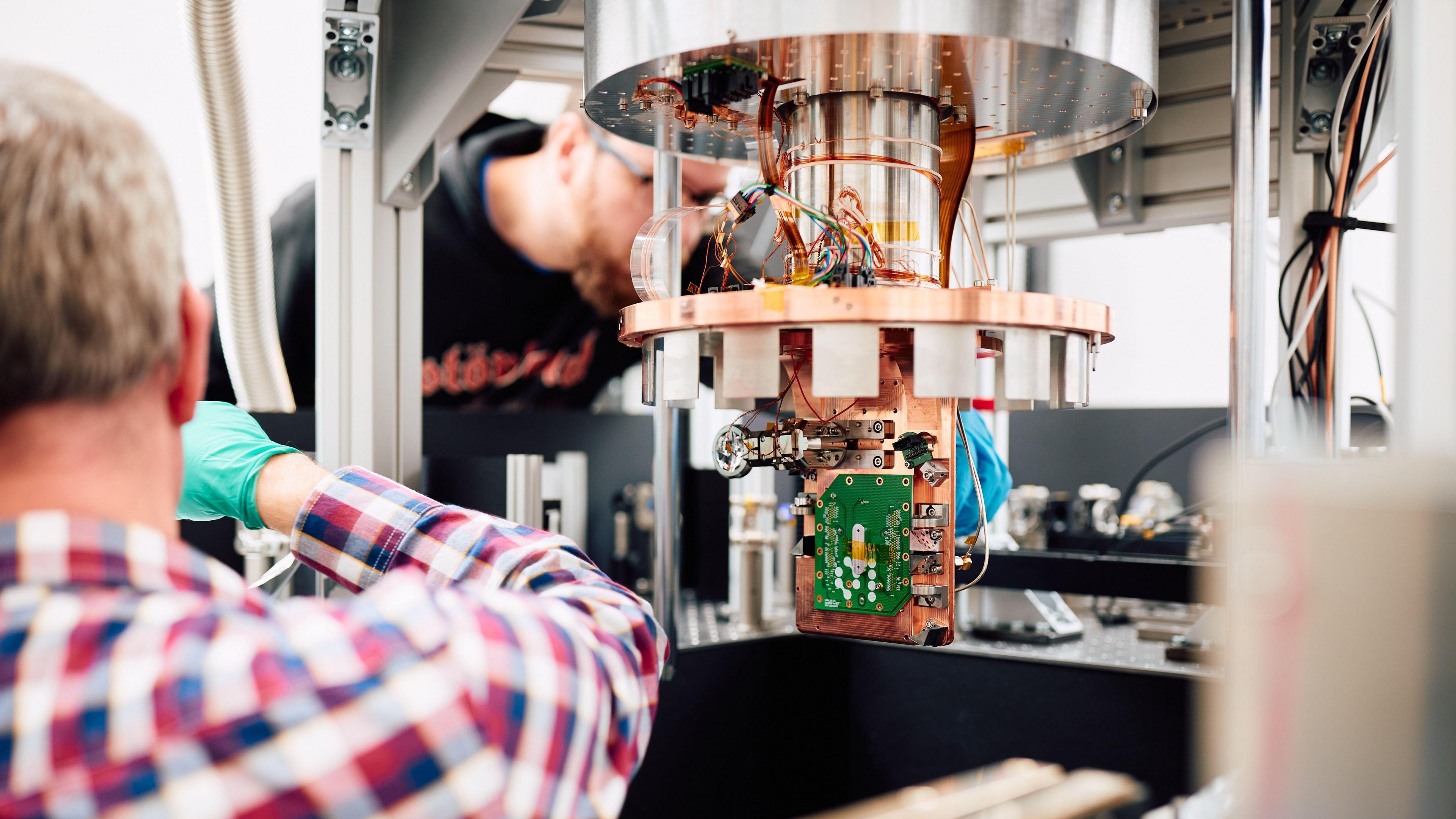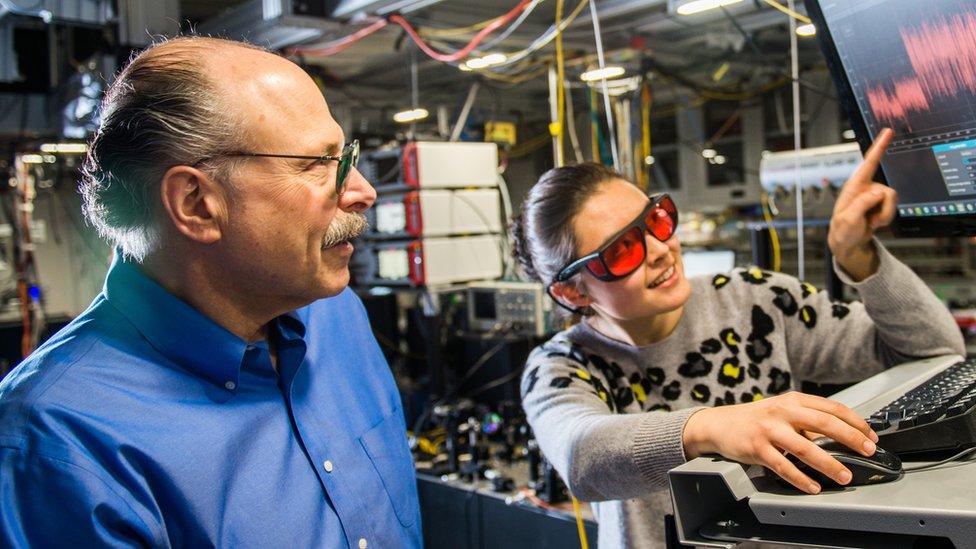Oxford chosen to help lead quantum computing research

The funding will pay for five research hubs, the government said
- Published
Oxford University has been chosen to lead one of five new research hubs to develop quantum technologies.
The government announced £100m of funding for five research hubs to deliver breakthroughs in healthcare, cybersecurity and transport.
The Hub for Quantum Computing is led by the University of Oxford.
Researchers will work closely with industry partners to develop applications, focusing on design for materials, chemicals, fluid simulation techniques, and machine learning.
Experts and physicists say this means that the problems combed over by average computers for years could be solved in a matter of minutes.
The research hub work will involve over 50 co-investigators with expertise across many different aspects of quantum computing, based at 18 institutions throughout the UK.
It will undertake research under three broad themes:
Improve quantum computing performance through hardware research to demonstrate its advantage across different platforms
Develop networking technologies to enable quantum technologies to scale to large systems, ultimately creating distributed quantum computing networks
Build collaborations with application scientists and engineers to develop algorithms suitable for testing the quantum hardware developed
Oxford University professor Charlotte Deane, who is executive chair of the Engineering and Physical Sciences Research Council (EPSRC), said: "Technologies harnessing quantum properties will provide unparalleled power and capacity for analysis at a molecular level, with truly revolutionary possibilities across everything from healthcare to infrastructure and computing."
Oxfordshire is also home to the National Quantum Computing Centre based at Rutherford Appleton Laboratory in Harwell near Didcot.
What is quantum computing?
Companies around the world are racing to make a revolutionary new generation of computers
Quantum computers make use of the weird qualities of sub-atomic particles.
So-called quantum particles can be in two places at the same time and also strangely connected even though they are millions of miles apart.
The computers found in most of our homes and workplaces process data in bits, which have a binary value of either zero or one.
Quantum computers instead use a two-state unit for data processing called a qubit.
Source: BBC
Follow BBC South on Facebook, external, Twitter, external, or Instagram, external. Send your story ideas to south.newsonline@bbc.co.uk, external.
Related topics
- Published16 July 2024

- Published7 May 2024

- Published8 February 2023
